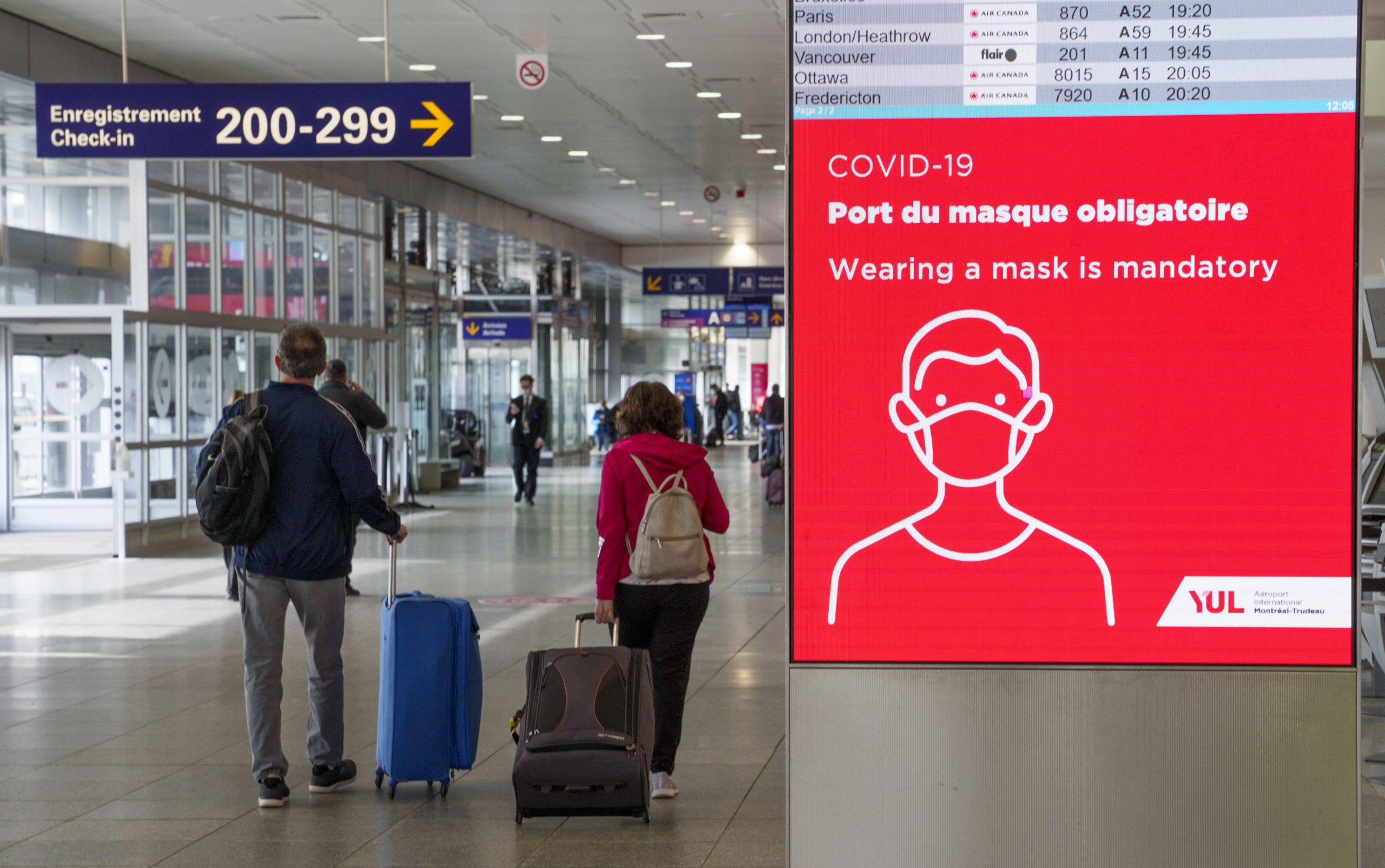Montreal public health plans ‘suppressive’ approach to Omicron variant cases

Montreal is preparing a "suppressive" approach to COVID-19 infections involving the Omicron variant of the novel coronavirus, including aggressive protocols for isolating cases and tracing contacts, the city's public health director said Wednesday.
Public health will take an approach similar to the one that helped the city fend off a third wave of COVID-19 in the spring, Dr. Mylène Drouin told reporters. The most notable change, she added, is that contacts of Omicron cases will have to self-isolate even if they are fully vaccinated.
"What we’re going to do is we’re going to be more aggressive when we have a case," she said.
"The contacts around those cases are going to be isolated even though they’re double vaccinated, and we’re going to see when we have more information on the characteristics of this variant if we even have to go to contacts of contacts, to widen the spectrum of people we’re going to isolate."
Drouin said officials would also be more quick to close classrooms or worksites in cases of possible exposures to the variant.
As of Wednesday afternoon, Quebec had confirmed one case of the Omicron variant. Drouin said the case involved a person from Montreal who was double vaccinated and asymptomatic, and who she said was unlikely to have infected anyone else in the city.
Drouin's update came as Quebec reported a spike in COVID-19 cases, with nearly 1,200 new infections on Wednesday. In addition to the 1,196 new cases, the province also reported two more deaths attributed to the novel coronavirus.
She said Montreal's case counts have been steadily increasing for the past five weeks, up to about 250 a day, but she said hospitalizations in the city have remained steady or have even dropped slightly. Drouin said the current case levels are similar to those at the peak of the fourth wave in September, adding that she expected them to climb for several more weeks as people gather indoors.
Sonia Bélanger, head of the regional health authority representing south-central Montreal, said the city had plans to free up some 500 hospital beds if ever the variant caused a spike in cases.
Drouin said officials still don't know much about the Omicron variant and that they don't yet know whether it's more contagious or virulent than previous strains. She noted that the "suppressive" approach she's planning is designed mostly to buy time against the variant and that it will be hard to contain if it begins to spread widely.
Earlier Wednesday, Health Minister Christian Dubé said health authorities had expected cases across the province to rise after certain restrictions were relaxed in November. But Dubé told a news conference the government doesn't want the daily numbers to go any higher into the holiday season, when Quebecers are expected to gather indoors.
"What I want Quebecers to remember, we need to keep those numbers low so that we can enter Christmas at the right level, and not only for us, but for the people that work in hospitals," he said.
"So, there's no panic, but we need to be really vigilant over the next few weeks."
Dubé refused to answer a number of questions about whether the high numbers would impact the rules surrounding Christmas gatherings. He said the rise in cases is problematic because children between the ages of five and 11 have only started to get vaccinated and because most adults haven't received a booster dose. Hospitalizations in the province have been rising by about 10 a day, he said.
Health workers administered just over 23,000 vaccine doses in the previous 24 hours, according to provincial data. About 12,000 of them went to children under 12, and another 6,123 were boosters given to those 70 and older.
Both Drouin and Dubé have said the vaccine campaign for children under 12 is going well. Drouin, however, said that for the moment, authorities only have the capacity to send mobile vaccination teams to about half of the city's elementary schools. She urged as many parents as possible to bring their kids to mass vaccination centres to get them protected as soon as possible.
Dubé said officials in the province haven't identified any new cases involving the Omicron variant of the novel coronavirus, adding that authorities are screening all of Tuesday's positive cases for that variant of concern.
This report by The Canadian Press was first published Dec. 1, 2021.
Morgan Lowrie, The Canadian Press





